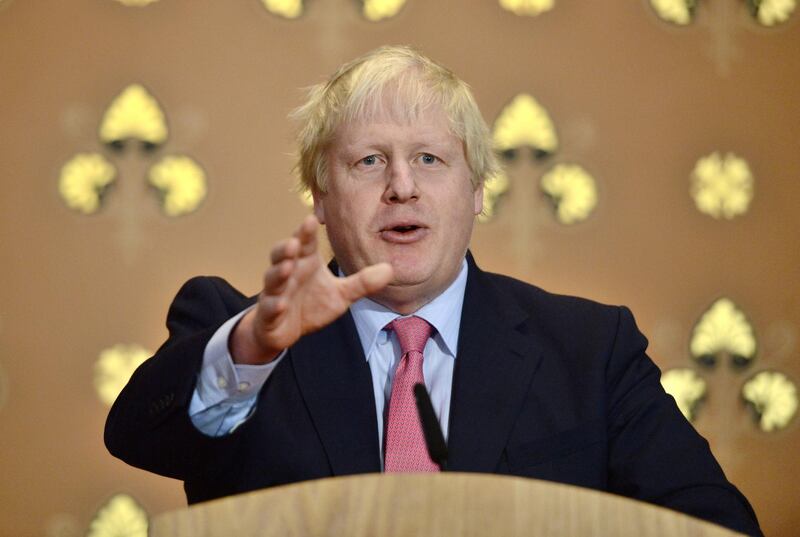Britain will seek to play a greater military and diplomatic role in the Middle East after the failure to intervene in Syria sparked a refugee crisis and contributed to domestic terrorism, the foreign secretary Boris Johnson said on Wednesday.
Mr Johnson’s ambition for a more robust role for Britain in crises in the region comes despite the government’s focus on the process of leaving the European Union and anticipated national defence cuts over the next decade.
“We need more engagement, not less,” he said in a speech in London. “We cannot just seal off the whole of the Middle East and North Africa and give them 50 years to sort themselves out.”
He said that current problems in Syria were exacerbated “not so much by Western meddling as by our aloofness” in failing to intervene in 2013 after Bashar Al Assad used chemical weapons against the civilian population.
“We called on Assad to go. We set the red lines of what we would accept in his treatment of the Syrian population. And then we did nothing about it,” he said.
“We willed the end and failed to will the means – leaving the pitch wide open for Russia and Iran.”
He said that the West must “collectively insert” itself back into the process, as it would eventually provide the money to rebuild Syria after a proposed political transition from the Assad regime and UN-monitored elections.
_________
Read more:
[ UK defence minister: Brits who joined Isil should be ‘eliminated’ ]
_________
He also proposed that the West should do more to resolve the conflict in Yemen and bring together factions in Libya. He said that Britain’s role would sometimes mean military action such as seen in the skies over Raqqa and Mosul as part of the US-led campaign against ISIL.
Mr Johnson accepted that the UK’s previous role in supporting the US-led invasion of Iraq and the removal of Saddam Hussein “helped to cause chaos” and sent a troubling signal around the Muslim world.
In toppling the dictator “we seemed to suggest a contempt for national political institutions” in the Middle East and North Africa.
He said, however, that blaming military intervention only fuelled the rise of Islamist terrorism. During 2017 national elections, the opposition Labour leader Jeremy Corbyn drew links between Britain's involvement in military interventions overseas and terrorism at home.
Britain has been hit by four terrorist attacks in 2017 leaving 36 people dead, and representing the highest toll from domestic terrorism since 2005.
In his wide-ranging statement about the future course of British foreign policy, Mr Johnson highlighted how terrorists had targeted nations such as Sweden and Belgium which had little history of military intervention in the Middle East.
He said that events surrounding Syria showed that Britain and allied states could not retreat into isolation.
“Look at the reality and we are not retreating from our role overseas, said Mr Johnson. “On the contrary we are learning what that retreat has cost us in the past.”





